DEFENDER OF ISLAM
The Aga Khan’s Letter to The Times of London, November 3, 1951, written from Cannes
In your leading article of October 22, 1951, under the heading “The Middle East” you have stated that “in the Muslim countries the second tendency (a violent reaction against the West) is exaggerated by an intolerant religion which preaches the duty of shunning foreign influences.” This sweeping generalization not only against Muslims but against their faith and Islam itself, is both untrue and unfair, and, indeed, shows a lamentable dearth of knowledge regarding Islam and its legal and religious principles, even among leading writers of the leading journal of the West.
Even a little knowledge of Islam will show that its religion is not only tolerant of other faiths, but most respectful, and, indeed, fully accepts the divine inspiration of all theistic faiths that came before Islam. It does not only teach tolerance to its followers, but goes a step further and enjoins on them all to create the godly quality of “Hilm,” that is, tolerance, forbearance, patience, calmness and forgiveness. It is due to the spirit of tolerance of Islam that even the smallest Christian and Jewish minorities survived and kept all their doctrines during the thousand years of Muslim rule. Nothing like what happened to Muslims in Spain after the Christian conquest has ever happened to a non-Muslim faith in any Islamic dominion.
How can Europeans be so ignorant as to have forgotten that in the first century of Islam the Khalifs ordered that all that was best in Greek and Roman cultures should be assimilated; that not only the philosophy, medicine, and science of Greece but its poetry and drama were carefully translated into Arabic and were generally sought not only by the learned buy also by the pious?
The Muslim attitude towards the absorption of ideas was based on the principle of Islam which enjoins to acquire knowledge wherever available, and there is a well-known and authentic saying of the Prophet that “his followers should seek learning even if they have to go to China.” Islam by its geographical position suffered the terrible Mongol invasions one after the other, just at the time when it was weakened by the long and immense efforts with which it had mastered the many successive crusades. It should not be forgotten that the Tartar invasions came one generation after the other. In fact, in the interest of the universal unification of mankind the Quran ignores the minor differences and says: “Come, let us unite to what is common to us all,” which obviously encourages Muslims to assimilate ideas and even customs from others.
It is, of course, true that Muslim countries, like modern European races, have acquired in this century a strong sense of nationalism which has no connexion with their religion. As such, if there has been violent reaction against the West in some of the Muslim countries, the reason is to be found in the attitude and behaviour of the Westerners, their ignorance and want of respect for the faith and culture of Islam, of which the reference to that faith in your leading article is a typical and usual example. Only recently I was in all the Muslim States where there is a so-called anti-western agitation, and I have no hesitation in saying that if the Atlantic nations and the West generally want better relationship with the Muslims, the solution lies in their own hands, and this can be done only if they change their mental attitude and cultivate better understanding of the Muslims’ material needs and the loyal recognition of the high quality of their national culture and the purity of their faith.
______________
Aga Khan Reacts to Chancellor Lloyd George’s Criticism of Prophet Muhammad
His services to the world of Islam are unmatched. No Muslim can claim to have rendered as much service to the cause of Islam as Hazrat Imam Sultan Muhammad Shah and for which he has been addressed as ‘The Redoubtable Champion of the Muslim Faith’. No attack or threat of attack on the fair name of Islam did he allow to go unchallenged.
It was during the 1st World War that the Chancellor of the Exchequer, Lloyd George (Prime Minister from December 7, 1916) had made unfortunate remarks against the Holy Prophet Muhammad. The Ismaili Imam responded as follows in a speech that he delivered at the meeting of the Indian Volunteers Committee in London on October 1, 1914:
May I speak of one matter of special interest to Mussulmans, for it is one in which I am confident we shall have the most cordial sympathy of our Hindu and Parsi brethren. Representations made to me from many quarters, as well as my own reading of the speech, showed that Moslem sensibilities have been deeply wounded by an observation, Mr. Lloyd George let fall in an otherwise inspired and splendid recruiting speech he delivered in London on the 19th September. The just scorn and ridicule that he poured upon the blasphemous claims of the Kaiser to be the weapon and the sword of the Almighty was followed by an unhappy and an unfortunate comparison that has seen nothing like it since the days of Mahomet. (Cries of Shame).
It is most unfortunate that, at the time when the Mussulman subjects of the King Emperor, constituting nearly a quarter of the population within His Majesty’s Dominions, are eagerly responding to the call of the hour, a leading Minister of Crown, whom we all respect, should have likened, or should have appeared to liken, the arch enemy of this Empire, who has wantonly plunged Europe and the world into unexampled suffering, with the Prophet of Islam. (Cries of Shame). Gentlemen, the Chancellor of the Exchequer may not be able to reciprocate the veneration for the founder of our faith which we are taught from childhood, to give to the Founder of the Christian faith, but he might at least show towards him the respect and reverence we all accord to the memories of the great sons of Christendom who do not belong, so to speak, to our religion like the Founder of Christianity does.
It is however, my personal belief and conviction that the observation from one who has never lived outside this country, or in contact with Moslem people, was, so to speak, an unconscious sort of passing reference not really meant towards the Prophet of Islam… I am sure it was not meant to be offensive and was unpremeditated; but I venture to urge that leading statesmen, and also publicists, should be careful not to play thus thoughtlessly and gratuitously into the hands of the Enemies of the Empire. (Cheers).
Soon after this protest, a meeting was called by the then Prime Minister Herbert Asquith, and the Chancellor publicly apologized to the Muslim world for his unreasonable criticism on Prophet Muhammad.
____________________
THREE EPISODES SHOW THE AGA KHAN AS AN ACTIVIST FOR EQUALITY
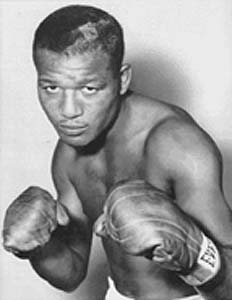
The Aga Khan resigned from St. Cloud golf club near Paris when some members objected to the black boxer Sugar Ray Robinson playing on the links.
The late Prince Sadruddin Aga Khan, in an article contributed to the Times of London on the occasion of the birth centenary of his father, noted:
“My father abhorred injustice and fought actively for both human and civil rights at a time when it was hardly a fashionable pursuit. He resigned from the exclusive St. Cloud golf club near Paris when some members objected to Sugar Ray Robinson – the black boxer – playing on the links.
“In Aix-Les-Bains, one day, he rebuffed the pompous head waiter of the hotel Splendide who refused to seat a large group of Senegalese students and promptly invited them to a three star lunch.
“He was deeply shocked by the ruthless and arrogant discrimination practised by whites in America, India and China. During his visit to China in 1906, he remarked: ‘Within the foreign settlements the general attitude towards the Chinese was little short of outrageous. All the better hotels refused them entry. From European clubs they were totally excluded. We hear a great deal about the colour bar in South Africa today. In China, in the early years of this century, the colour bar was rigidly imposed – not least offensively in discrimination against officials of the very government whose guests, under international law, all foreigners, were supposed to be. Is it any wonder that the Chinese intelligentsia long retained bitter memories of this attitude?’.”
_____________________
AGA KHAN WAS A BLESSING AND CONFIDENCE BOOSTER DURING FAMINE AND PLAGUE
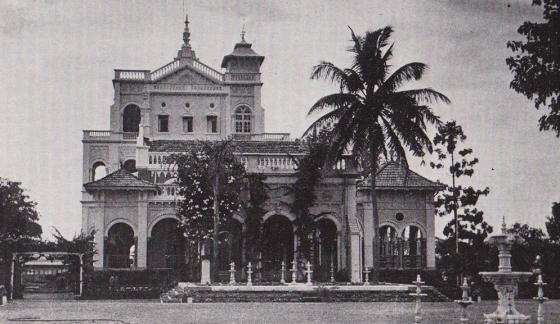
Yerawada (or Aga Khan) Palace, now the Gandhi Memorial, was built by Aga Khan III to provide a means of livelihood to the famine stricken people in Pune
The Aga Khan’s public career may be said to have begun just before the end of the 19th century when he was called upon to take a leading part in famine relief work in India. That was in 1897 when he saved thousands of people from starvation and hunger. He recognized no distinction of caste or creed while distributing grain, money and clothes. The construction of his Yerawada Palace was undertaken solely with a view to providing an honourable means of livelihood to the famine stricken people.
After the famine came plague, first in Bombay and then in other parts of India. The terrified people shut their ears against the voice of wisdom and raised a huge cry against inoculation. It was reserved to the Ismaili Imam to set an example to his followers and to the residents of Bombay. He called a meeting and explained to his followers the benefits of inoculation, and by being personally inoculated in their presence several times, stimulated them to follow his example.
For his services, a public dinner was proposed but he wrote back to the reception committee to express his deep reservations about holding such a function:
‘I cannot accept any entertainment when thousands of people are dying of starvation. I would urge that every rupee that could be spared should be given for the relief of sufferers by famine instead of wasting it on entertainments.”
_____________________
AGA KHAN – “DELIVERER OF JOY”
Unbounded love for Islam and sincere devotion to the cause of Muslims were dominating passions of the life of Hazrat Imam Sultan Muhammad Shah. The great and lasting services he rendered to the world of Islam could not be matched by anyone else. Muslim leaders took any opportunity that came their way to shower lavish praises on him.
In 1914 during the Muslim League Conference at Lahore, a rousing welcome was accorded to him. The Welcome Address presented to him read as follows:
“Welcome to you, most glorious leader, master of our hearts, defender of the Faith of Islam, leader amongst leaders, guide of the mu’mins, hope of the faithfuls! Muslims flock at your doorsteps for guidance. Great Prince! Islam is proud of you. Member and direct descendant of the great family of our Holy Prophet Muhammad, the whole nation is ready to sacrifice at the instance of your command. The dust under your feet gives light to the blind. Your heart is a symbol of unity. You are the destroyer of religious differences .You have uprooted the evil of ignorance and have lighted our paths. The shouts of welcome are being heard coming from the heavens. Your care and protection over us will never cease to exist. O Aga Khan! May you live forever.”
Again at Delhi, in the year 1928 when Hazrat Imam Sultan Muhammad Shah attended the All India Muslim League Conference, people in large numbers had thronged to welcome him. A Muslim poet ‘Khaliq’ sang some Persian couplets, one of which rendered in English reads:
“The arrival of Sir Aga Khan to this land has breathed new spirit into our lives;
There is rejoicing all over the land, for the bright sun, with all its glory, has descended from the sky.
O Khaliq! Give good tidings to the Muslims of this land –
‘The Messenger of Peace’ and ‘The Deliverer of Joy’ has arrived amongst us.”
Then in his welcome address, Sir Moulvi Muhammad Yaqub narrated an incident of an old lady who had visited the court of Abbasid Caliph Mamun saying:
“Valuable things were spread out in the palace hall of Caliph Mamun for his subjects to take away whatever they wanted. People had flocked in large numbers to the palace hall and they carried away as much as they possibly could. By evening, time when everybody had left Caliph Mamun noticed an old lady still waiting in the empty hall. He went up to her and asked:
‘What would you like to have from these precious things?’ and the old lady replied: ‘O Caliph! I want nothing from your treasure. The only thing I desire is to live under your lordship’.”
Having related this incident, Sir Yaqub voiced the feelings of all Muslims in the following words:
‘O Aga Khan! We are saying this to you to-day. We desire nothing but your grand self, O great Aga Khan.’
Concluding his welcome address, he recited a Persian couplet, the rendering of which in English reads as follows:
“Far and wide have I traveled,
Love and pleasure of many have I earned;
Personalities great have I met,
O Aga Khan! You are incomparable.
Words I have not to glorify your charm.”
____________________
More articles in this special series on Aga Khan III:
Voices: Sir Sultan Muhammad Shah, Aga Khan III – Portraits from the National Portrait Gallery
Literary Reading: Hazrat Imam Sultan Muhammad Shah, Aga Khan III – Links to Movies at British Pathe
Literary Reading: Sir Sultan Muhammad Shah, Aga Khan III – The Imam of the Socio-Economic Revolution
________________________
More About Yerawada Palace (Known as the Aga Khan Palace or the Gandhi National Memorial) from Bharat online:
Aga Khan Palace is one of the most magnificent monuments of Pune, situated in the Yerawada area. The palace dates back to the year 1892 and was constructed under the patronage of Sultan Mohammed Shah, Aga Khan III. There was a noble cause behind its construction. In the decade around 1890s, the area around Pune was hit by a severe famine. Sultan Mohammed Shah ordered the construction of this palace, in order to provide employment to the drought-hit people.
In the year 1969, Prince Karim, Aga Khan IV, donated the Aga Khan Palace to the Government of India. He intended it to be used by the Government in honor of Mahatma Gandhi and his philosophy. Today, the palace houses the samadhis of Kasturba Gandhi (wife of Mahatma Gandhi) and Mahadev Desai (a long time aid of Mahatma Gandhi). It is because of the reason that both the individuals left for the holy abode, in the palace itself. After their death, Charles Correa got their samadhis built in the palace grounds.
Even the ashes of Mahatma Gandhi have been interred at the Aga Khan Palace. Since the palace is so closely associated with Mahatma Gandhi, it is often known by the name of Gandhi National Memorial also. It serves as the venue of exhibitions, depicting the life and career of Mahatma Gandhi, on a frequent basis. Aga Khan Palace was also one of the shooting locales of the famous movie ‘Gandhi’, based on the life of Bapu. A museum is also situated inside the premises of the palace.
Depicted inside the museum, is a rich and a very wide collection of pictures, which represent almost each and every significant happening in the life of Mahatma Gandhi. One can also see a number of items displayed here, which were used by Gandhji when he was alive. These include his utensils, clothes, mala, chappals (slippers), etc. The management of the museum, samadhis and campus of the Aga Khan Palace is being looked after the Gandhi Memorial Society, since the year 1980.
http://www.bharatonline.com/maharashtra/travel/pune/aga-khan-palace.html

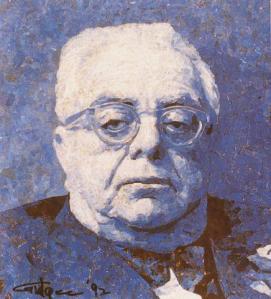
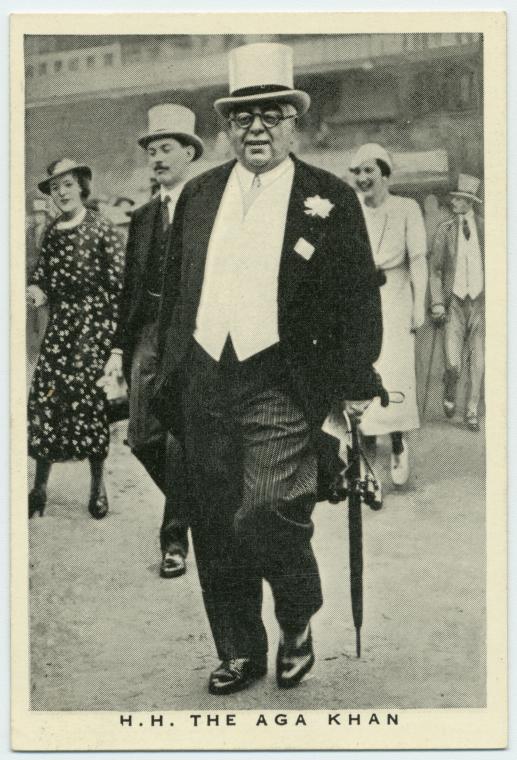
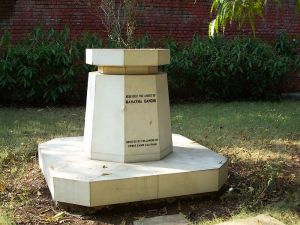
Thanks for the nice article! Can you please share the Persian version of the poetries.